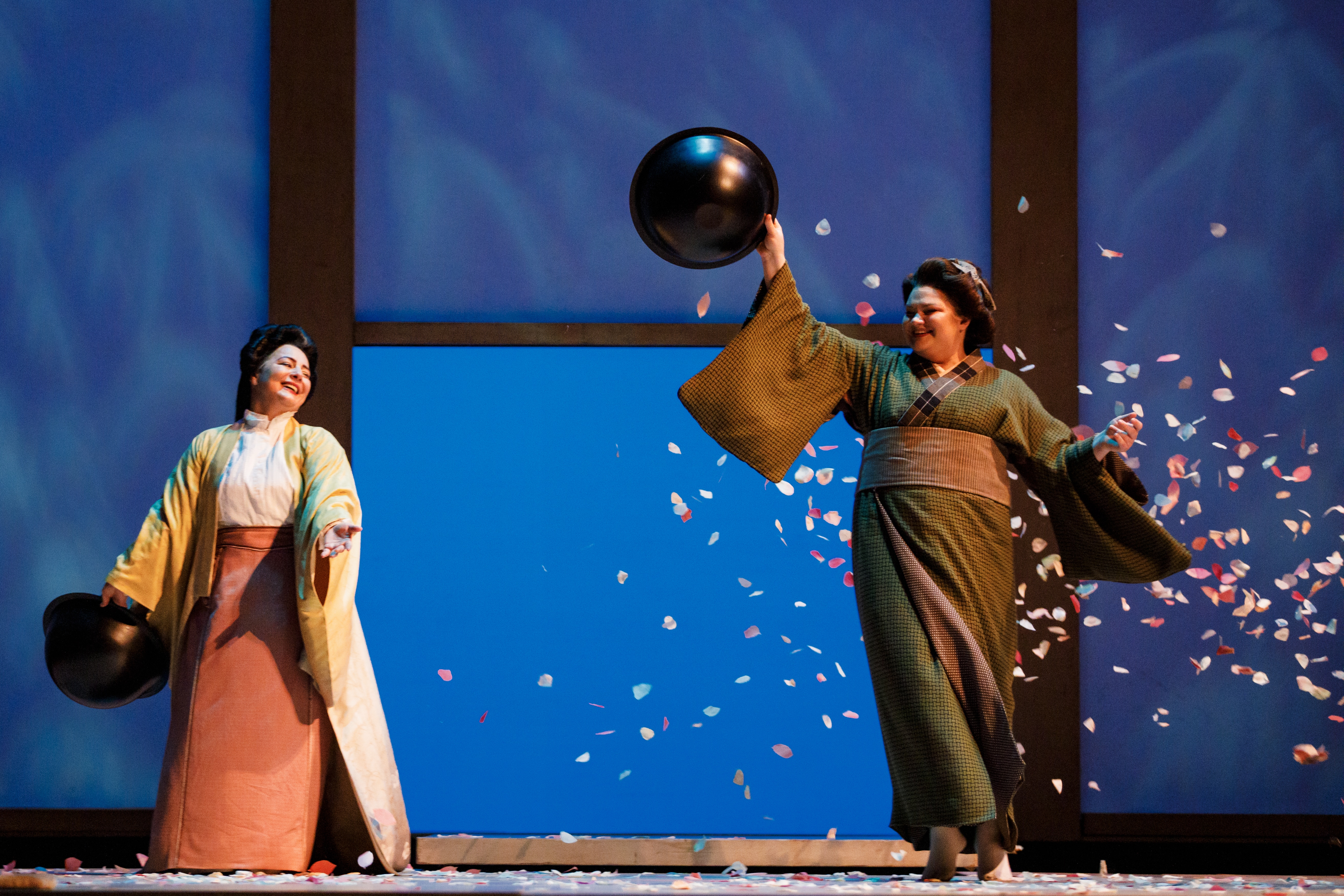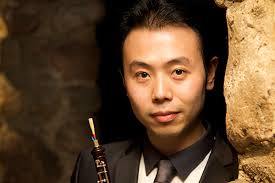Welcome to the Suzuki Madam Butterfly
NewsThe School of Oriental and African Studies at the University of London has issued a press release claiming credit for having ‘reimagined (Madam Butterfly) for 21st Century audiences following a consultation by the Royal Opera House.’
The cleaned-up Butterfly opens tonight.
Soas claims: Dr Satona Suzuki, a lecturer in Japanese and Modern Japanese History at SOAS, was drafted in to help make the production fit for 2022 audiences after outdated narratives from the late nineteenth century, around imperialism, orientalism and sexism, and misrepresentations of Japan, threatened the opening with a possible backlash from modern audiences. (Oh, really?)
The year-long consultation by the Royal Opera House involved staff from the ROH, academics, practitioners, performers and Asian representatives to help remove any references that could offend. The collaboration inspired discrete but important changes to several aspects of the existing staging, including makeup, wigs and costume, and movement.
Commenting on her involvement, Dr Suzuki, said: ‘I really admire the director’s decision. As a historian, I genuinely believe that when facing difficult and uncomfortable issues we reflect on our past from different perspectives through meaningful discussions. It makes more sense than simply ignoring or cancelling such a masterpiece that is still so important for modern audiences.’






…says the School of ORIENTAL and African Studies
lol
Medice, cura te ipsum
The headline is misleading. I thought it meant the production would have Butterfly’s maid as the focus of the opera.
Let’s give this the benefit of the doubt – they speak of ‘discrete but important changes to the staging and various aspects’ to get a more authentic feel of Japan, rather than a dreamt-up orientalism. Let’s see where this goes, no?
Besides, I’m sure we’ve all seen much worse happen to our favourite operas…
If I wanted “an authentic feeling of Japan” – or any other country – I’d go to a museum or a library. Who goes to the theatre to see authenticity or reality? It’s an escape, a fantasy. What’s wrong with that?
We have. Hugo de Ana’s rampantly anti-American version of Butterfly I witnessed in Buenos Aires takes the cake – Butterfly sewing an American flag at the opening of Act 2 that was half the size of the stage was the least of it!
I’m ASSUMING they mean “discreet.” I have seen the is-spelling so often lately I am almost used to it, but in this paragraph it could go either way, though the “discrete” would be unnecessary.
FCS, could people learn to spell again? A bit more attention to the basics before they moved on to concepts like interpretation would be bloody useful to those of us they are trying to “teach.”
I have always found it quite vehemently anti-American….. possibly because my boyfriend was in the pit with another girl the first time I saw it, and “Oh say can you see” strikes up at least 5 times…Pinkerton is a rotter – and a man of his times?
It’s really the Haroutounian Butterfly. That’s how good she is in this part.
What happened to the title? Puccini’s opera in case is spelt like this: Madama Butterfly.
Yes, the School of Oriental and African Studies, SOAS – my old university and a fine one for what it says on the can in its name. But they won’t have done that consultancy for nothing, and they are more into ethnomusicology than opera or any other kind of music. Wonder how many in the audience will be so astute as to notice, and it will still offend many as an opera. Better they had done a new production than ‘reimagine’, as the mangement speak goes, this particular one before it gets banned completely by the wook community.
I mean, woke, not wook! But you will know what I mean!!
I do — but despite not being A Star Wars fan (saw the first one as a sprog, loved it, but am not into SF) even I know that Wookies are intelligent, friendly, etc., all the characteristic these tightly wound, anally-focused wokies are not.
Is this the production in which the unspeakable ‘wrong’ of Suzuki holding her left hand over the right (or the other way round, I have already forgotten), was ‘righted’? And because of this great ‘wrong’ modern audiences were ‘offended’ and threatened the opening with a possible backlash? When pigs fly. Woke gone out of hand. It beats me why normal people continue to put up with this nonsense.
Is it “woke” (whatever that really means) or is it some variation of “historically informed performance” – the sort of thing that gives us Stravinsky on “original instruments” (Les Siecles)…..
You can look ‘woke’ up. No, it isn’t some variation of historically informed performance because it’s an _Italian_ opera and its creator never cared about which of Suzuki’s hand is over the other, nor did _his_ audiences, nor do _modern_ audiences care. Modern Western audiences _are told_ to care about such things, with which we’re back to woke. Funny they are never encouraged to care about the quality of singing. You can talk about historically informed performance if modern orchestras would play Tosca without the special Castel Sant’Angelo sound of matins bells, and you would reinstate them. You can talk about historically informed performance if modern orchestras would play Aida without the special ‘Egyptian’ trumpets, and you would reinstate them, together with gut strings, 432Hz, and other niceties.
I was right in my first comment, this isn’t the first SD post dedicated to this production. I remembered I had commented there, went back to the old post and copied a list of titles I reproduce here.
ROH productions I know for sure that are _completely_ divorced from the composer’s intentions or the period and place specified in the libretto. If the costumes happen to be period (sort of), the bodies inhabiting the costumes behave outside the period, and we are not talking about which hand is on top of the other.
Rigoletto
Lucia di Lammermoor
Guillaume Tell
Aida
Il Trovatore
La Bohème
Samson et Dalila
Cosi fan tutte
Otello
Salome
Alcina
Die Walküre*
Tannhäuser
Siegfried
Il Barbiere di Siviglia
Le Nozze di Figaro
Don Giovanni
Rusalka
Wozzeck
Werther
Don Carlo
*I agree this allows for a certain freedom of interpretation, given the mythological subject, but the libretto makes it clear it isn’t meant to be set in modern time.
Considering the length of the above list, and the mockery those productions make of the libretto, I say it’s hypocritical to the hilt on part of ROH to pretend modern audiences would have threatened the opening of the old Madama Butterfly production with a backlash.
Do you feel virtuous knowing which of Suzuki’s hands ought to be over the other? Do you actually _know_ , even now, which hand belongs over the other? If you do, how long do you think until you won’t remember anymore? And a last question, do you attend Madama Butterfly to stare at Suzuki’s hands, or for the music and the drama, both Italian?
Good post, points well made!
Dr. Suzuki’s comment seems perfectly reasonable to me (unlike some of the preceding SOAS/ROH blather). The changes made to the staging are likely to enhance the production or be hard for the non-expert to notice, and will not distract or detract from the operatic experience, unlike many so-called avant-garde productions.
A woman of sublime love and devotion encounters an unworthy suitor. After all these years, this tragedy carried on waves of majestic and ethereal music is what the audience cares about. If not, they would not buy the tickets.
“Cleaned up” Butterfly. What a farcial, disgusting reference. The mania for “modernization is ruining opera, especially what has been considered “grand opera”! Cho-cho-san. like it or not, was written (and correctly) as a fourteen year old girl. Pinkerton was, again correctly, written as a twenty-something white, male predator who in his mileau is doing nothing “wrong” in his gratuitous abuse. Holding THAT mirror up exactly as written is needed today every bit as much as it was when the Maestro wrote it — he knew what he wrote. It does NOT need “cleaning” because much of what these “Orientalists” see as offensive and out of date are what make Butterfly the timeless work of art it is. STOP FIDDLING WITH MATERPIECES! Write you own and see if they last, although I doubt it.
If we had to change every opera because it offends someone it would be a lifetime employment…Get over it and just enjoy beauty